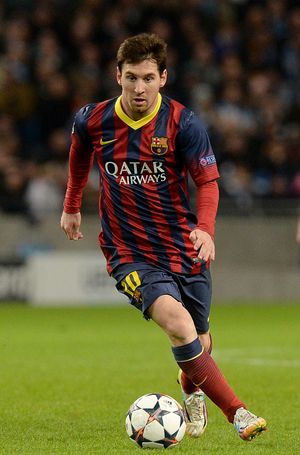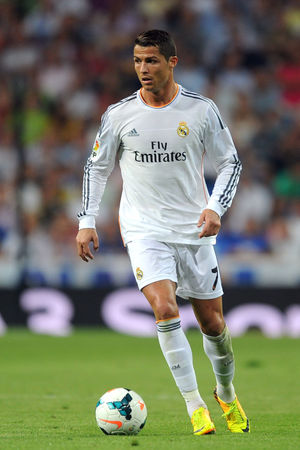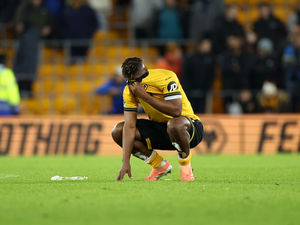Sky Sports' Johnny Phillips: Messi or Ronaldo? The answer is Maradona...
Is there a more tiresome question in football today than, ‘Who is the greatest, Messi or Ronaldo?’
The answer, of course, is Maradona.
Comparisons are generally a waste of time unless you are a football manager trying to pick a team from a squad of players, then it is probably a good idea to start making them.
The problem with the futile Messi or Ronaldo debate is that neither player resembles the other in style of play or position on the pitch. They are both phenomenal in their individual ways. Maradona’s genius, where neither Messi nor Ronaldo measure up, is that he changed the landscape around him so much.
When Maradona arrived in Italy, in July 1984, the destination was Naples and not one of the established giants of Italian football from the north. This was a country marked by tensions and bitterness. A North-South divide was at its peak, with stark social differences between the two. The south had suffered economically, and Naples was a particularly deprived city. The riches in both society and football were to be found in the north. No club from south of the Italian peninsula had ever won the Scudetto.
But whilst Maradona set about transforming the outlook for the Neapolitan citizens there was also his country’s hopes to consider.
The 1986 World Cup took place in Mexico. Argentina were a fading force. Winners in 1978, they exited in the second round in 1982. They were not amongst the pre-tournament favourites, going into the searing heat of Mexico. Before the start of the tournament most observers had anointed France’s Michel Platini and Brazil’s Zico as the stars to watch, with their respective countries tipped for greatness.

Maradona, of course, established himself as the shining light of the tournament. The bare statistics read that he scored five and assisted five, but his impact on the World Cup was far greater. More than three decades have passed yet memories of his feats are vivid for those who lived through the era.
The greatest individual goal of all time, against England in the quarter-final. His sensational man-of-the-match performance and two goals in the semi-final against Belgium. And then the perfectly judged pass for Jorge Burruchaga to settle the final against West Germany
The quarter-final achieved notoriety for the Hand of God goal which, ignoring the stark reality that a 5ft6ins striker outjumped a 6ft goalkeeper, tainted him forever. But his winner was one of the most inspiring moments of any World Cup. “That second goal was the one time in my life where I felt like I ought to applaud the opposition. I didn’t, because I was gutted, but it was undoubtedly the greatest goal I had ever seen,” said England’s Gary Lineker.
“I don’t want to underrate the other players in his national team, but I don’t remember any other footballer as decisive in winning a title as Maradona was in Mexico,” said Spain’s Emilio Butragueno.
Maradona was a man possessed. Still only 25 years old, he seized the period of his life when his powers were peaking. Omitted from the 1978 tournament and dismissed against Brazil in Argentina’s last match of the 1982 tournament, Maradona ensured he would go down in history.
Unlike Pele at the World Cup, the man perceived to be the greatest player before him, Maradona did not have an entire team of world class players all around him. Ah, but there we go again. Futile comparisons. This is not a piece where we measure up players qualities for Top Trumps.
“I took the World Cup as an obligation. I wanted to score goals, to distribute play, to dive at rivals’ feet, to arrange my team, to mark rivals,” Maradona says. “I promised it to myself as a duty. I did not do it so everyone would say that Maradona was a star. I did it so Argentina would be the champions.”

Back at Napoli, there was a growing confidence. Pride had been restored, but what could be achieved? When the Italian title was secured a year after the World Cup, the entire city celebrated. Maradona was worshipped. That is no hyperbole, he was the God of Naples. Further success followed, with an Italian Cup the following season. Then the UEFA Cup was won, back in the days when it was a closer resemblance to the Champions’ League rather than an afterthought.
A second Serie A title in 1990 secured Maradona’s legend. But he left for the World Cup that summer convinced that his time in Italy’s south should end. In the grip of the Mafia, his personal life was unravelling. Drug addiction and the temptations of all-night parties were starting to take their toll. When Argentina beat Italy in the semi-final of the World Cup he was, wrongly, cast as the outsider. After Italia 90 nothing was ever the same.
Maradona is a flawed individual. Most of us are. His life has always been full of contradictions, failings and even demons. Younger football fans will get the opportunity to see the impact the Argentinian made during his long and controversial career when Asif Kapadia’s new film, Maradona, is released this weekend.
I am looking forward to a trip to the cinema to see the work, which promises to be one of the most thorough examinations of the man ever produced on screen. Maradona changed so much as a footballer. His legacy on the pitch is yet to be surpassed.




